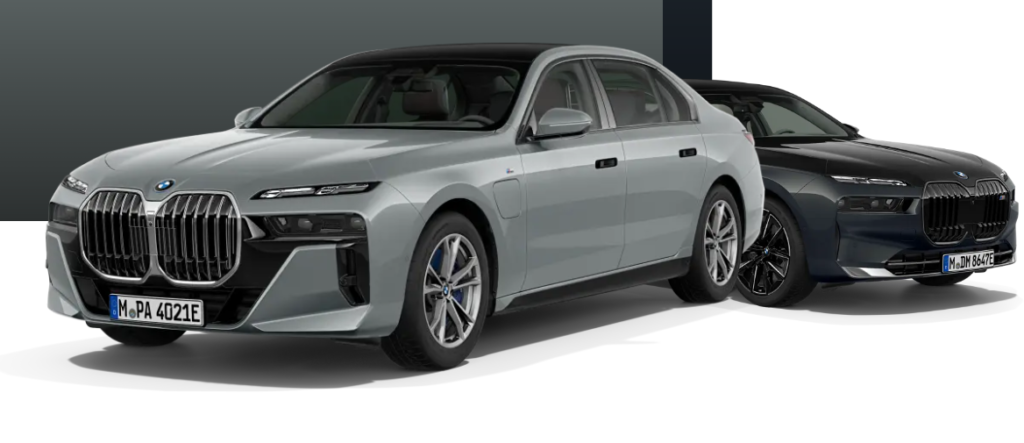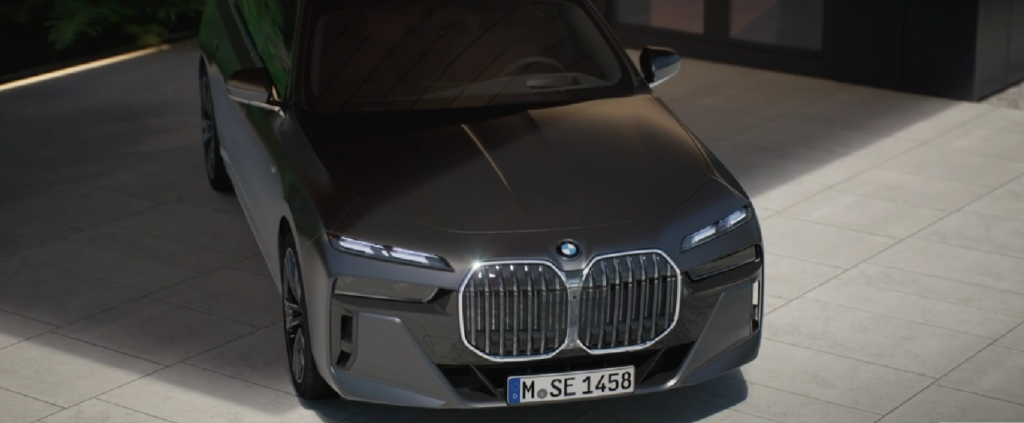BMW has once again taken a leap into the future with its groundbreaking patented technology. This revolutionary approach involves the utilization of laser radiation to craft exterior trim panels made of unpainted plastic, ushering in a new era of luxury and practicality for high-end vehicles.

Traditional automotive aesthetics often involve costly paint touchups, especially on premium models like the BMW 7 Series. Recognizing the environmental impact and expenses associated with the conventional painting process, BMW has introduced a game-changing method.
The patent, discovered in collaboration with the German Patent and Trademark Office (DPMA), highlights a process where plastic body panels are transformed with laser-etched textures, eliminating the need for traditional paint applications.
BMW’s proposal transcends the limitations of unpainted plastics by incorporating compounds with reactive dyes. These dyes respond to laser radiation, unveiling intricate patterns and textures on the plastic surface. The radiation, emitted by lasers, mimics the process of laser-etching, creating a myriad of visual effects. From stone or terrazzo-like patterns to textures reminiscent of forged carbon fiber or quartz, the possibilities are expansive.
- OFFICIAL: Lamborghini Huracan Successor Going Hybrid, Two EVs Coming By 2029
- THE 2024 NISSAN LEAF In Canada
- EQUINOX 2024 Price,Review&Specs
- 2025 Aston Martin Vantage Teaser Reveals Epic Widebody Proportions
BMW envisions implementing this innovative process across various components, including bumper trim, inserts, diffusers, sill trims, wheel arch cladding, grille surrounds, and other plastic elements. Beyond aesthetics, the durability of these laser-etched panels is a game-changer.
Crafted from dye-infused plastic polymers, these panels withstand superficial damage, such as light scratches and stone chips, without compromising their appearance. Unlike traditional scratched paint or chipped surfaces, the material’s finish remains intact, reducing the necessity for frequent panel replacements or detailing. Even deep scratches are mitigated by a chemical reaction beneath the surface layer, preventing unsightly scars.
BMW’s commitment to sustainability extends beyond the aesthetic realm. The absence of paint simplifies the recycling process, making these panels more eco-friendly. The plastic used in manufacturing may come from recycled materials or non-petroleum-based sources utilizing vegetable oils and fats. This not only minimizes parts manufacturing but also aligns with BMW’s dedication to a greener automotive future.

The chemistry behind irradiation typically results in specific color changes, but BMW’s forward-thinking approach allows for a diverse color palette. Reds, yellows, blues, and an array of hues can be achieved, offering a customizable and visually stunning array of options for automotive enthusiasts.
In the pursuit of elevating automotive aesthetics and environmental responsibility, BMW’s laser-etched plastic body panels stand as a testament to ingenuity. This revolutionary technology not only enhances the visual appeal of high-end vehicles but also contributes to sustainability and reduced manufacturing waste.
As the automotive industry undergoes a transformative period, BMW’s commitment to reimagining the future sets a new standard for excellence. From reducing the visibility of parking lot scuffs to embracing a more sustainable manufacturing process, BMW’s laser-etched plastic body panels pave the way for a future where innovation meets elegance on the open road.